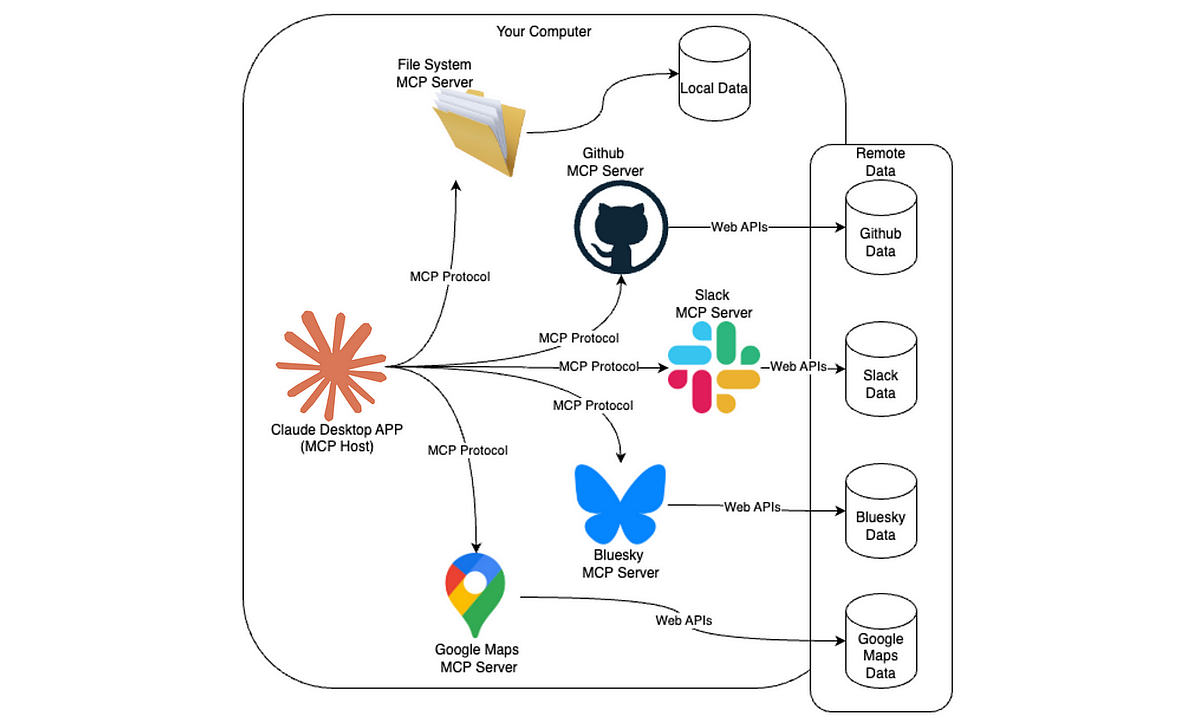How to Run a Successful Remote Marketing Agency Team
Share now


Running a successful remote marketing agency team has become increasingly relevant in today’s digital age, significantly impacting the marketing industry, by opening up opportunities for businesses to tap into a global talent pool and operate efficiently across different locations. Find out how we could help you achieve significant results with employees working remotely.
Challenges of Managing a Remote Marketing Team
Communication and Collaboration
Remote teams may face challenges in maintaining effective communication and collaboration due to different time zones, cultural differences, and language barriers.
Building Trust and Team Bonding
Physical distance can make it troublesome to build trust and foster remote team bonding among remote employees.
Time Zone Differences
If remote employees are spread across different time zones, coordinating meetings and ensuring real-time collaboration can become a real balancing act.
Performance Monitoring and Accountability
In a remote setting, this may prove especially difficult when it comes to tracking progress, and performance metrics, and establishing regular check-ins to stay informed about individual and remote team performance.
The Benefits of a Remote Marketing Team
Access to a Global Talent Pool
You can tap into expertise from different regions, cultures, and backgrounds, enabling your team to bring fresh perspectives and ideas to your marketing strategies.
Cost Savings and Scalability
Remote teams eliminate the need for physical office space, resulting in significant cost savings. Additionally, you can easily scale your remote team up or down based on project requirements without the limitations imposed by physical office space.
Increased Productivity and Work-Life Balance
Remote work often provides remote employees with more flexibility in managing their work and personal lives. Remote teams have the freedom in remote working environments where they feel most comfortable and productive.
Enhanced Focus and Reduced Distractions
Working remotely can help remote employees minimize distractions commonly found in traditional office settings, They can create a personalized work environment that optimizes focus and concentration, leading to higher-quality work output.
Hiring and Onboarding for Remote Marketing Teams
Hiring and onboarding for remote marketing teams require careful consideration to ensure that you attract the right talent and set them up for success.
Hiring Criteria for Remote Marketing Teams
- Self-Motivation and Discipline : Individuals should be able to manage their time effectively, stay focused, and meet deadlines without constant supervision.
- Strong Communication Skills : It’s crucial to hire individuals with excellent written and verbal communication skills who can collaborate effectively with team members.
- Technical Competence : Seek candidates with a strong technical background and familiarity with marketing software, any project management tool, analytics platforms, and other relevant technologies.
- Adaptability and Resourcefulness : Look for candidates who are adaptable, resourceful, and can think outside the box and find creative solutions to overcome challenges to drive results.
- Cultural Fit : Look for individuals who align with your organization’s values, and demonstrate collaboration, adaptability, and a positive attitude towards remote work.
The Importance of Communication Skills in Remote Marketing Teams
Clear and concise communication forms the backbone of effective collaboration and managing remote workers as it ensures that everyone is on the same page, promotes idea sharing, and minimizes misunderstandings. Effective communication fosters trust , engagement, and a sense of connection working remotely. Remote team members should be able to communicate through verbal and written channels like emails, chat messages, video conferences, and client interactions.
Setting clear expectations during onboarding
It’s important to set clear expectations during onboarding so that new hires have a comprehensive overview of the organization, team dynamics, and the remote environment and work culture. This clarity helps individuals understand their contribution to the team, integrate smoothly into the team’s existing process, and align their efforts accordingly.
Essential Tools for Remote Marketing Team
- Project Management Tools like Trello, Asana, or Basecamp track tasks, deadlines, and project progress. These tools facilitate collaboration, enhance visibility, and ensure everyone is on track.
- Communication and Collaboration Tools such as Slack or Microsoft Teams, Zoom, or Google Meet facilitate real-time communication and virtual meetings among remote employees.
- File Sharing and Document Collaboration platforms like Google Drive, Dropbox, or Microsoft OneDrive enable seamless file sharing, version control, and collaborative editing of documents and spreadsheets.
Building Team Culture in Remote Marketing Teams
Building a strong team culture is crucial for remote marketing teams as it creates a sense of belonging, fosters collaboration, and enhances overall team performance.
The Importance of Building Culture in Remote Teams
Building a team culture helps remote workers and other team members feel connected and have a sense of belonging. It promotes a supportive and inclusive collaborative and engaging remote working environment where individuals feel valued and motivated to contribute their best towards a common goal.
Building Relationships Between Team Members
Scheduling regular one-on-one check-ins between remote workers fosters personal connections. These virtual meetings provide an opportunity to discuss work-related matters but also allow for casual conversations to build friendly and supportive work relationships.
Organizing Team Building Activities
Plan virtual team-building games, projects, social events, or activities that promote collaboration, problem-solving, and friendly competition as well as celebrate achievements or milestones. These activities provide opportunities for remote teams to leverage each other’s strengths , socialize, bond, and relax in a casual setting.
Foster Communication and Transparency
Establish open communication channels within the remote marketing team as well as conduct regular team meetings to discuss ongoing projects, share updates, and address any concerns or challenges.
Encourage remote teams to collaborate, collectively problem solve and celebrate team members’ achievements, milestones, or successful campaigns. This boosts morale, motivates individuals, and reinforces a positive team culture.
Managing Productivity in Remote Marketing Teams
Managing productivity in remote marketing teams requires effective goal setting , progress tracking, and the utilization of appropriate tools.
Setting Up KPIs and Goals for Remote Marketing Teams
- Align goals with the overall objectives of the organization.
- Use the SMART framework to set goals that are Specific, Measurable, Achievable, Relevant, and Time-bound.
- Define KPIs and metrics that are outcome-focused rather than just activity-based.
Measuring and Tracking Progress
- Conduct regular progress check-ins. These can be weekly or bi-weekly to ensure alignment, accountability and provide support.
- Utilize performance dashboards or project management tools to track key metrics and visualize progress.
- Leverage data and analytics to measure the effectiveness of marketing campaigns and strategies.
Effective Communication in Remote Marketing Teams

Clear communication ensures that team members understand their roles, responsibilities, and project objectives. It fosters collaboration, and information exchange as well as establishes trust and problem-solving among team members, despite physical distances.
Regular interaction and open communication channels create a sense of camaraderie, retrospections, and guidance and foster a positive team culture.
Tips for Improving Communication in Remote Teams
- Use Multiple Communication Channels such as email, instant messaging platforms, video conferencing, and project management tools.
- Establish Clear Communication Guidelines within the whole remote work management and marketing team. Define response times, preferred communication channels for different types of communication, and protocols for urgent matters.
- Schedule Regular Check-Ins to discuss ongoing projects, provide updates, and address any questions or concerns.
- Practice Active Listening among team members during virtual meetings or discussions. Encourage participants to actively engage as needed.
- Be Mindful of Time Zones when scheduling meetings and communication. Consider rotating meeting times to accommodate everyone’s availability and ensure equal participation.
- Document and Share Information to ensure transparency and enable easy access to information. Use shared online platforms or project management tools.
Collaborating and Brainstorming in Remote Marketing Teams
Collaboration and brainstorming play a crucial role in fostering creativity and innovation within remote marketing teams
Collaborative Tools for Remote Marketing Teams
- Virtual Whiteboards : Tools like Miro, Mural, or Microsoft Whiteboard provide a virtual canvas where team members can create and share notes, sticky notes, mind maps, and diagrams.
- Shared Document Collaboration : Platforms such as Google Docs, Microsoft 365, or Dropbox Paper enable team members working remotely to simultaneously edit and comment on shared files, fostering collective brainstorming and idea generation.
- Idea Management Software : IdeaScale, Stormboard, or Aha! centralize and manage the brainstorming process. These tools facilitate the submission, evaluation, and tracking of ideas.
- Video Conferencing and Screen Sharing : Tools like Zoom, Microsoft Teams, or Google Meet provide a platform for remote employees to participate in enhanced virtual brainstorming sessions.
Best Practices for Remote Team Brainstorming Sessions
It’s important while managing remote teams to clearly communicate the objectives, and share relevant information and material as well as the desired outcomes of the brainstorming session in advance. This ensures that all participants are informed, aligned, and focused on generating ideas that address specific challenges or opportunities.
Assigning a facilitator to lead the brainstorming session ensures that all participants have an opportunity to contribute in a timely and productive manner.
It is also important to encourage active engagement and diverse perspectives to create a supportive space that can lead to more innovative and creative solutions.
Promoting a Culture of Ideation and Innovation
Acknowledge, appreciate, and encourage team members’ contributions by recognizing and celebrating their ideas. Encourage regular communication and collaboration to stimulate idea generation and create opportunities for serendipitous innovation in a safe and supportive environment.
Offer training and resources when managing remote employees which equips them with tools and methodologies to enhance their ideation skills as well as promote a culture of continuous learning, experimentation, and risk-taking.
Celebrating successes and learning promotes a culture of innovation and encourages others to share their thoughts and suggestions.
Managing Remote Marketing Teams from a Distance
Managing remote teams from a distance requires effective remote management, building trust, addressing conflicts and challenges, and remote managers staying involved in day-to-day operations.
Leading a Remote Team Effectively
Leading remote teams can be accomplished through clear communication, aligning goals, empowerment and autonomy, and regular check-ins. Goals that are aligned with clearly communicated expectations make it easier to provide feedback and keep everybody focused and motivated.
Encouraging autonomy with regular check-ins empowers team members working remotely to be accountable for finding creative solutions and addressing challenges in an accessible supportive environment.
Building Trust With Team Members
Especially with remote employees, it’s important to establish trust from the start. This can be accomplished by creating and encouraging open and honest communication in a safe remote environment.
It is also important to recognize their contributions publicly and privately while investing in their professional growth by providing opportunities for training, mentorship, and expanding their skills.
Dealing With Conflicts and Challenges
Conflicts and challenges are inevitable but they can be overcome by:
- Addressing conflicts early.
- Encouraging teamwork in an inclusive environment.
- Actively problem-solving in a safe remote work environment.
Staying Involved in Day-to-Day Operations
- Maintain regular communication to stay informed
- Review progress, recognize achievements, and provide feedback guidance.
- Monitor key metrics and results to optimize outcomes.
- Participate in remote team meetings, virtual or otherwise.
Remote Marketing Teams and Project Management
Remote marketing teams can benefit greatly from utilizing project management tools to streamline workflows, enhance collaboration, and ensure effective project execution.
Choosing the Right Project Management Tools for Remote Teams
These tools should incorporate
- Collaboration and Communication Features that may include task assignment, file sharing, commenting, real-time updates, and integrations with communication platforms.
- Task and Project Tracking that allows for the easy task and project tracking such as task lists, timelines, Gantt charts, progress monitoring, and milestone tracking.
- Document Management tools that allow remote workers to store, share, and collaborate on project-related documents, ensuring everyone has access to the latest versions.
- Integration Capabilities such as file storage platforms, time-tracking software, or analytics tools streamline workflows and facilitate seamless data transfer between systems.
Managing Remote Teams Through Project Management Software
Project management software allows for one-stop
- Task assignment and prioritization.
- Communication and collaboration.
- Centralized Information and Documentation
- Progress Monitoring and Reporting
Ensuring accountability and transparency in project management
Accountability and transparency can be accomplished by:
- Clearly defining the roles and responsibilities of each team member, working remotely within the project.
- Establishing deadlines and milestones.
- Scheduling regular check-ins and progress updates.
- Documenting and detailing workflows and processes
- Performance Metrics and Evaluation
Motivating and Retaining Remote Marketing Teams

Motivated and satisfied remote marketing employees are more likely to be engaged, productive, and deliver high-quality work because they experience higher levels of job satisfaction and overall well-being.
Retaining talented individuals within your remote marketing team ensures continuity and builds institutional knowledge within a cohesive and collaborative environment.
Recognizing and Rewarding Team Members
You should strive to incentivize and tangibly reward exceptional performances and milestones. This can be accomplished by providing timely and effective feedback ( Here’s how! ) to remote workers on their performance, achievements, and contributions.
You should also foster a culture of peer recognition where remote employees can appreciate and acknowledge each other’s efforts.
Offering professional development and growth opportunities
- Training programs, career advancement, and skill development opportunities inclusive of access to online learning platforms.
- Mentorship and coaching between experienced remote teams and those seeking guidance allow for knowledge transfer, skill-building, and personal growth within the remote marketing team.
- Discuss clear career paths and growth opportunities with remote workers
- Provide guidance and outline the skills or experiences needed to progress within the organization.
Addressing Remote Work-Related Burnout
Burnout can be avoided through proper workload management, flexible schedules, work-life balance, regular check-ins, one on one calls, support, encouraging time off as well as fostering a positive remote team culture in the remote workplace.
An ideal environment requires a balance of realistic expectations and healthy personal boundaries.
Balancing Work and Life in Remote Marketing Teams
By prioritizing work-life balance, encouraging a healthy balance, and promoting mental and physical well-being, employees who work remotely can thrive.
Remote managers that value the well-being of their remote workers create a remote working environment that fosters employee engagement, satisfaction, and long-term success for the remote workforce.
Encouraging a Healthy Work-Life Balance for Remote Team Members
A healthy work-life balance can be achieved by clearly communicating expectations regarding working hours, flexibility, availability, and response times.
Encourage remote teams to establish boundaries with transparent flexible schedules and to take time off with pre-established appropriate communication preferences.
Promoting Mental and Physical Well-Being for Remote Team Members
Mental and physical well-being can be accomplished through providing wellness resources such as counseling services, wellness programs, or subscriptions to fitness apps.
These can be tangible or virtual.
It’s important to encourage remote teams to prioritize self-care and to take regular breaks throughout the workday. Encourage stretching, short walks, or other activities to break up sedentary work and promote physical and mental rejuvenation.
Final Thoughts
A successful remote marketing agency team can be achieved in a cultivated productive environment where remote teams feel comfortable discussing their well-being, and job performance and seeking guidance when needed. Encourage open dialogue and provide resources for growth support both mentally and career wise.
If you need help establishing a healthy work culture and operations, 8 Figure Agency can help. Learn more about our services and how we will help you reach your 8-figure goals.
The post How to Run a Successful Remote Marketing Agency Team appeared first on 8 Figure Agency.



